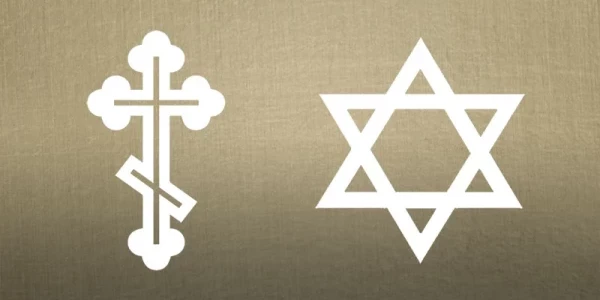Under what conditions would the Orthodox engage in Judeo-Christian dialogue
08/08/2019 | Na stronie od 08/03/2024

Source: Academia.edu
Sandrine Caneri/-/
Institut de théologie orthodoxe Saint Serge à Paris Faculty Member
Chercheur sur la Torah orale et les écrits talmudiques en relation avec les écrits des Pères de l'Eglise et la tradition byzantine.
The official dialogue between Churches and Judaism began between the two world wars, in America and then in England and intensified after the Second World War, reaching most Western European countries. The Eastern Churches feel estranged from this dialogue led by the Western Churches, as they have neither the same approach, nor the same history, nor the same texts of reference. This is why the Orthodox Churches wish to enter the dialogue according to their own approach, relying on their own texts, and recontextualizing the Fathers of Church when they speak about Judaism. By basing the dialogue on the origins of the Church, the Orthodox can justify why certain liturgical texts are obsolete and harmful to the Christian conscience. They will also be able to show how their tradition is close to and in continuity with the Jewish tradition. By doing so, they will be sensitive to the rebuilding of the unique people of God, composed of Christians and Jews according to the Epistle to the Ephesians (2.14)
Judeo-Christian dialogue originated and developed in the West/1/ following the Second World War./2/ When speaking of dialogue, we are specifically referring to official dialogue between two communities, and not simply that between notable individuals, as such dialogue has existed since the foundation of the Christian community. Sadly, the fruits of such personal exchanges have most often left no trace on Church history, or on the people of God. But how is it that this official dialogue, born in 20th century America then spread into Western Europe, has had little to no influence on the countries of Eastern Europe? Why?
/-/ Sandrine Caneri, Teacher in patristic exegesis, St. Serge Institute of Orthodox Theology (Paris). Address: 48 route de Cuxac, 11600 Villardonnel, France. E- Mail: sandrine.caneri@orange.fr
/1/ The American association, now called ICCJ (International Council of Christians and Jews), was founded in 1928 as the National Council of Christians and Jews. ICCJ now brings together thirty-eight organizations and meets annually in a major city to continue the meetings and common study.
/2/ Outside the ICCJ, dialogues existed between the two wars, see: Rémy Guérinel: “Traces d’un dialogue bienveillant dans l’entre-deux-guerres”, in: Sens 394 (12/2014), p. 793-802. Already alive before the second war, the dialogue reached a decisive stage from 1947 and the decades that followed.